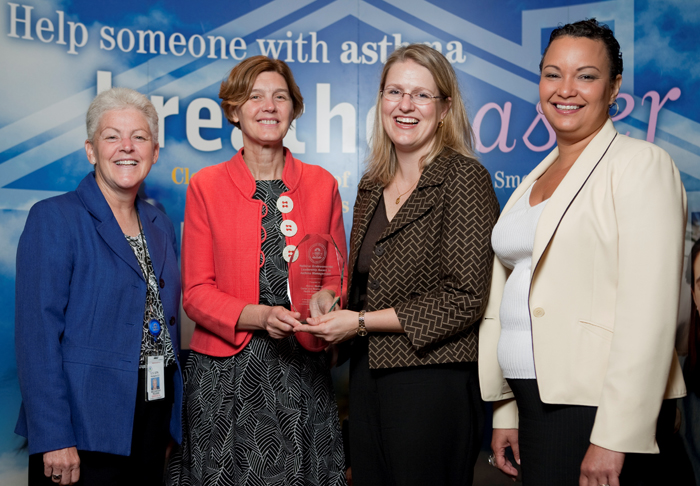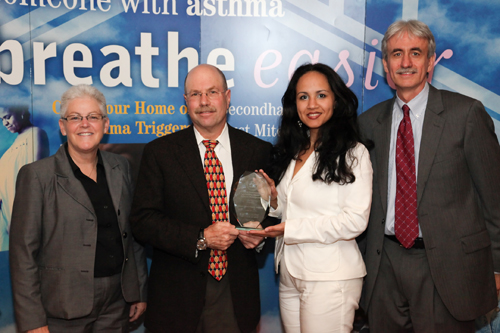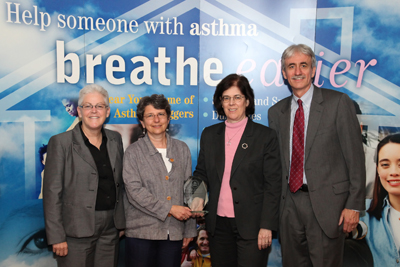MaineHealth AH!

MaineHealth's service area covers 90,675 patients with asthma, including 27,156 children in southern, central, and western Maine. The AH! (Asthma Health) Program combines standards-based clinical care with robust indoor and outdoor environmental asthma management. Patients receive counseling to manage exposures to environmental triggers in home, school and work settings. The AH! Program has a strong presence outside its clinical settings, having built long-term relationships with community organizations, schools and daycare centers, public health departments, and others. The AH! Program also takes leadership positions to advocate for municipal, state, or national public policy actions—such as bans on tobacco use in public places—that create asthma-friendly environments. The results of these impressive efforts have reduced emergency room use, hospitalizations, and missed school and work days, and improved physician adherence to national guidelines for asthma care. Evaluations at six months post-intervention show a 61 percent reduction in appropriate emergency room use and a 29 percent reduction in hospitalizations. Maine Medical Center, one of MaineHealth's member hospitals, achieved a reduction in emergency room visits from 81 percent to 20 percent and hospitalizations from 32 percent to 3 percent. These improved outcomes resulted in 2006 avoided costs of $61,635 on emergency room visits and $411,470 on hospitalizations.
Elizabeth Cotsworth, then Director, Office of Radiation and Indoor Air, U.S. EPA, presents Award to (from left to right) Donna Levi, Julie Osgood (holding the award), and Rhonda Vosmus of MaineHealth AH!





